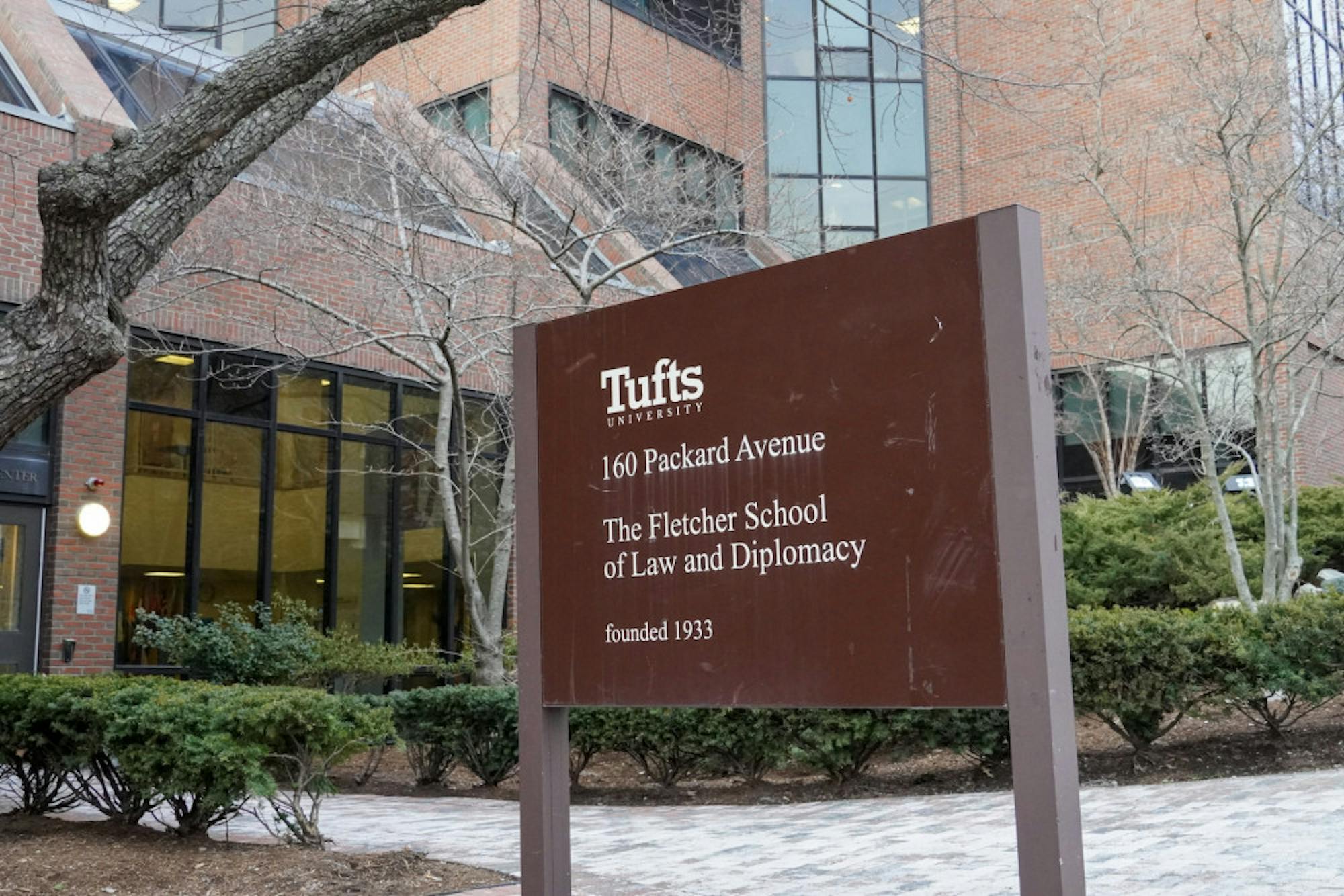Volodymyr Dubovyk, visiting professor at The Fletcher School, spoke about academia in war-stricken Ukraine in a conversation titled “Ukrainian Scholarship in Times of War.” Dubovyk is an associate professor of international relations and director of the Center for International Studies at the Odesa I. Mechnikov National University in Ukraine.
Dubovyk discussed the effects of war on scholarship, displacement, access to resources and the country’s future with Arik Burakovsky, assistant director of Fletcher’s Russia and Eurasia Program. Dubovyk explained that he is part of Scholars at Risk, an international network that protects researchers and scholars from violence.
“In terms of becoming a scholar at risk … Ukrainian scholars, we are all at risk right now,” Dubovyk said. “At risk of physical annihilation, at risk of losing our jobs, at risk of losing members of [our families].”
Dubovyk teaches virtually to students back home in Odesa, and also teaches Fletcher students about Black Sea regional security and Ukrainian foreign and security policy. Dubovyk explained the necessity of remote learning due to safety concerns with in-person instruction in Odesa.
“[When] Russian air jets are in the air and we expect them to strike the territory, you don’t know right away where they are going to strike,” Dubovyk said. “They would announce an air raid alert … technically professors and students have to go to the basement and wait until it’s over. So when you have several of those every day, and sometimes each one of those is an hour and a half [or] two hours, then [in-person learning is] already not an option.”
In the midst of this virtual learning environment, Dubovyk cites internet and electricity outages as significant obstacles to digital instruction.
“The city of Odesa, where I’m from … is one of the worst situations in terms of power supply in the entire Ukraine,” Dubovyk said. “Quite often, people would go without any electricity for days. … There’s no internet, often there’s no cellular connection too, there’s no water supply, no heating — there’s nothing.”
Dubovyk described the difficulty for students to stay in school and for their parents to continue paying for their education, attributing these factors to a decline in enrollment.
“A lot of students have left,” Dubovyk said. “[For] a lot of people, their parents, who have been paying for their education, don’t have any money,” Dubovyk said. “So we have a major drop in the numbers in terms of those who stay, in terms of those who are entering university.”
In addition to the financial burden experienced by students and their families, Dubovyk explained that an inevitable increase in the Ukrainian defense budget is shifting government funds away from educational and social resources.
“About half of the Ukrainian budget is spent on defense, military things, which means things like education, libraries, museums, culture, healthcare, everything within the social sphere … they’re going to be underfunded,” Dubovyk said.
Ukraine is currently under martial law, limiting the ability for Ukrainians to travel. Since positions at international universities for Ukrainian scholars at risk are limited, yet growing, Dubovyk conveyed that non-resident positions and fellowships are essential opportunities for scholars who are unable to leave the country, especially those who are internally displaced.
“People want to survive, somehow, and do their job, and they will be relying on [these] kinds of non-resident positions,” Dubovyk said. “And that’s important because you have a lot of people who are not just refugees, but also internally displaced persons … it’s at least one-third of the nation.”
Dubovyk also discussed the economic harm that inflation inflicts upon scholars’ decreasing salaries, emphasizing the importance of outside funding for Ukrainian scholars.
“A very small salary, which is now eaten by inflation even more so, in Ukraine would be, on average, $200, maybe $250 a month — that would be the salary of a Ph.D. or associate professor,” Dubovyk said. “That’s definitely not something that people can survive on. Therefore, the lifeline, in many ways, becomes these positions, including non-resident positions and grants.”
Since Dubovyk is uncertain about the near future of the war, he suggested that international scholarship networks and contributions to Ukraine are of paramount importance, both in the present and once the war is over.
“There are dark times ahead and we don’t know what is expecting us,” Dubovyk said. “The participation of the international academic community … in helping Ukraine to go through this, and even when the war is over, would be of critical significance.”






